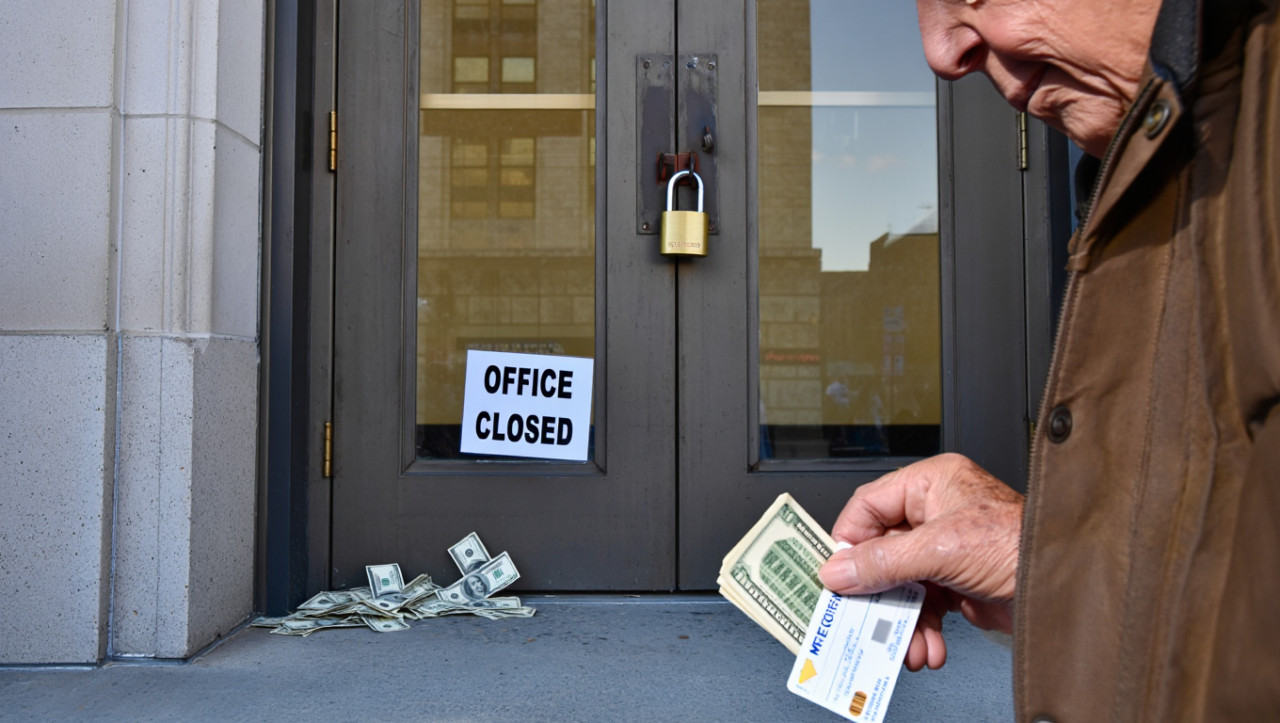Social Security Alerts, News & Updates
Social Security Offices Face Potential Widespread Closures

Government’s Latest Bright Idea: Close Social Security Offices Because Who Needs Human Help Anyway?
Well, isn’t this just peachy. The latest news on Social Security has the government considering shutting down offices across the country. Because nothing says “we care about seniors” quite like making them figure out complex benefit issues via chatbot.
Here’s the brilliant plan floating around Washington: Close Social Security field offices to save money. Genius, right? I mean, who needs actual humans to help navigate one of the most Byzantine government programs ever created? Surely your 85-year-old grandmother can just hop on her smartphone and sort out that Medicare enrollment issue herself.
The Math That Makes Politicians Sweat
Let’s crunch some numbers, because apparently that’s all anyone in D.C. understands these days. Baby boomers are retiring at warp speed. About 10,000 Americans hit retirement age daily. Meanwhile, the worker-to-beneficiary ratio looks worse than my college GPA.
The Social Security Administration faces a legitimate funding crunch. We get it. The trust fund depletion projections read like a horror novel. By 2033, we’re looking at automatic benefit cuts unless Congress actually does something productive. (Insert laugh track here.)
But here’s where the logic train derails. The proposed solution? Make it harder for people to access the benefits they’ve paid into their entire working lives. It’s like solving traffic by removing all the roads.
Why This “Solution” Is About as Smart as a Screen Door on a Submarine
The masterminds behind these closure proposals seem to think everyone lives in a digital utopia. Their assumptions include:
- Every American has reliable high-speed internet (spoiler: they don’t)
- Senior citizens love navigating government websites (they’d rather have root canals)
- Complex disability claims can be handled via email (sure, and I’m the Queen of England)
- Phone support will magically improve when offices close (because that’s how math works?)
Currently, trying to reach the Social Security office by phone is like winning the lottery, except less fun and more soul-crushing. Average wait times already exceed an hour. But sure, let’s dump more calls into that system. What could go wrong?
Meet the People Who’ll Get Royally Screwed
Let me paint you a picture of who really suffers when Social Security offices vanish like my motivation on Monday mornings.
First up: Rural Americans. You know, those folks who already drive 50 miles to reach the nearest office? Now they’ll need to drive 150 miles. Or just give up. Because nothing says “serving the public” like making services geographically impossible to access.
Then we have the technology-challenged. My uncle still uses a flip phone and thinks WiFi is a type of stereo system. You want him to navigate the SSA website to fix his Social Security benefits? Good luck with that. He’ll have better odds teaching his cat to do taxes.
Don’t forget about Social Security disability applicants. These people often need extensive documentation, medical reviews, and face-to-face consultations. But hey, I’m sure they can just upload their X-rays to Instagram or something.
The Real Cost of “Cost Savings”
Here’s what the bean counters miss while they’re patting themselves on the back for “efficiency.” When you close a Social Security office, you don’t eliminate the need for services. You just make desperate people more desperate.
Remember that sweet elderly neighbor who needs help understanding her Medicare options? She’ll now spend weeks trying to get answers. That means delayed medical care, confusion about coverage, and probably a few tears of frustration.
Or consider the widow trying to claim survivor benefits after her husband’s death. Nothing says “compassionate government” like forcing grieving people to navigate automated phone trees for hours.
The hidden costs pile up faster than dishes in a bachelor’s sink. Incorrect benefit calculations because nobody could help. Delayed disability determinations leaving families in financial limbo. Seniors falling victim to scams because they couldn’t verify information with a real person.
A Novel Idea: Actually Fix the Problem
Call me crazy, but maybe we could try solutions that don’t involve abandoning the people who need help most. Wild suggestions include:
Modernize without abandoning. Yes, improve online services. But keep offices open for those who need them. It’s called having options, a revolutionary concept in government.
Invest in efficiency, not elimination. Better training, updated technology, and streamlined processes could work wonders. But that requires actual effort, so never mind.
Address the real funding issues. Maybe, just maybe, we could have an adult conversation about sustainable funding instead of playing whack-a-mole with service locations.
The Bottom Line Nobody Wants to Hear
This Social Security update reveals an uncomfortable truth. We’re watching a slow-motion train wreck where the solution to budget problems is making life harder for the most vulnerable Americans. It’s like curing a headache by hitting yourself with a hammer. Technically, you’ll stop thinking about the headache.
The Social Security Administration already struggles to serve the public adequately. Phone lines stay jammed. Processing times stretch for months. Online systems crash regularly. And the proposed fix? Remove the one reliable option people have left.
As this brilliant plan moves forward, remember who pays the price. Not the politicians making these decisions from their comfortable offices. Not the consultants recommending “digital transformation.” It’s your parents, your disabled neighbor, and eventually, you.
So next time someone tells you closing Social Security offices is about “modernization” and “efficiency,” ask them if they’ve ever tried helping their confused parent reset a government website password over the phone. Then watch them squirm.
Because at the end of the day, a government that can’t be bothered to maintain basic services for its most vulnerable citizens isn’t being efficient. It’s being negligent. But hey, at least the spreadsheets will look nice.